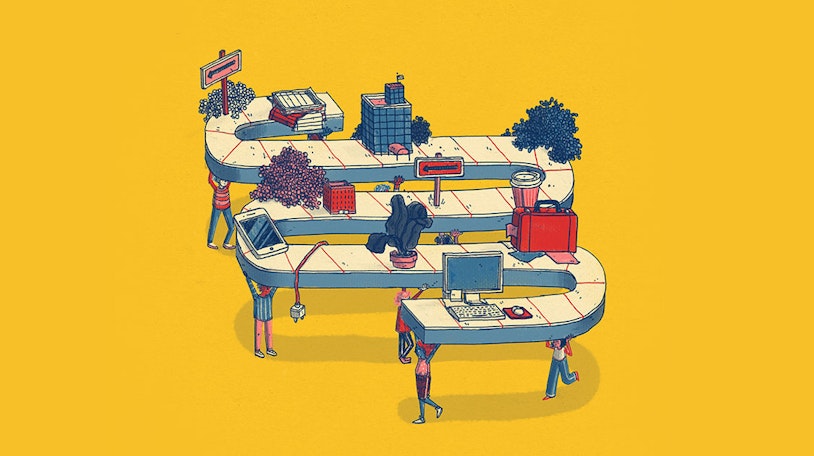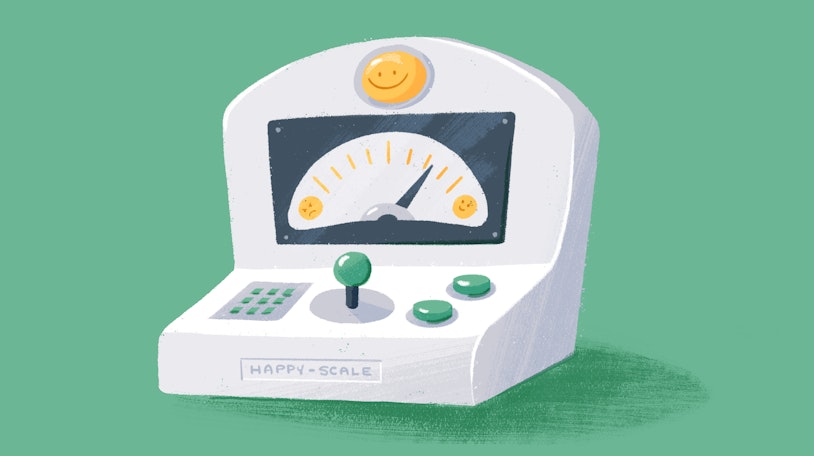A Guide to Customer Success Manager Career Paths


Over the past few years, customer success has become a burgeoning industry that offers tons of jobs. As the industry grows, so do the number of opportunities and the number of people interested in those opportunities.
Customer success manager career paths are now highly diverse in where they lead — it's not just a single role or approach that everyone needs to follow. Whether someone wants to be in upper management or continue to grow and develop themselves as an individual contributor, there are myriad ways to get there.
Is a customer success career right for you?
After hearing all of the exciting news about customer success, it's no surprise that you would want to jump on board and start your new career! However, a job in customer success might not be the best fit for everyone.
Let's look at some qualities that would make someone successful in a customer success role:
Passionate about customer experience and customers in general.
Enjoy selling without necessarily actively selling a product.
Naturally investigative and curious — should enjoy exploring options and innovating.
Gifted problem-solver and solution-finder.
Experience managing accounts or relationships with customers.
Excellent at synthesizing complex information and presenting it concisely.
If you have some of these traits or feel that you could grow into them, you'd likely be a good fit on a customer success team.
What does a customer success manager do?
What you do day to day largely depends on the company that employs you. Some customer success managers (CSMs) focus heavily on onboarding, for instance, while others may be responsible for managing customer renewals and upgrades.
That said, the primary responsibilities for most customer success roles just starting off look fairly similar.
Create and monitor health scores
One of the critical indicators of success for most customer success teams is customer health. A customer health score is a proprietary score put together by the team in collaboration with other groups like product and marketing. It considers metrics like product usage, how often the customer is engaging with your support and success teams, and whether they've filled out surveys such as Net Promoter Score (NPS) or customer satisfaction score (CSAT).
Using this data, your customer success team has a guide to understanding how much your customers are using your product and where their areas of opportunity may be. They immediately have a bird's-eye view of how many of their customers are "healthy," i.e., using the product in a way that you'd like them to, and how many aren't.
Run playbooks
Playbooks are a series of actions that customer success managers run to accomplish specific goals. They help coach the CSMs on best practices and provide templates and guides for sending emails or messages. The best part about playbooks is that they set a standard and allow things to be easily repeatable and templated for the future.
While much of a CSM's day to day will be running playbooks, it may also be helpful for them to create playbooks as well. If a CSM comes up with a new tactic or introduces a new structure into their process, they could template it for use within the broader team.
Study user behavior
Customer success and support teams are often the groups within your company that customers trust most. Your customers may provide more personal details and insights about usage to a CSM during a casual conversation on a call than they would to a Net Promoter Score (NPS) survey.
Because of this familiarity and comfort, your CSMs and support folks are an excellent resource for understanding and studying user behavior. With more data on how customers use the product, your customer success team can adjust your health scores and playbooks to reflect the most up-to-date usage statistics.
Beyond affecting change within the customer success org, CSMs can also funnel information back to product and user experience teams if you have them. Building these relationships cross-functionally is essential for being on a customer success team.
Manage customer onboarding
Some companies have dedicated onboarding teams, but it’s fairly common for CSMs to handle that responsibility. CSMs take over the customer relationship after purchase. If your buying cycle is supported by a salesperson, there will typically be a transitional meeting between the teams for an introduction. If you have a buy-it-yourself sales model, your CSM may proactively reach out to the customer after purchase to get a "kick-off" scheduled.
Onboarding usually consists of a kick-off call or meeting, then several pre-scheduled follow-ups that support the customer in getting up and running with your product. Your customer success team may utilize several playbooks during the onboarding period to make sure things run smoothly and uniformly.
Promote retention and renewals
Depending on the company you work for and how they define the role of customer success, some customer success managers may be responsible for managing renewals. If it is not the responsibility of your customer success team, renewals may be designated as a specific team or may fall to sales.
Even if the customer success team at your company isn't wholly responsible for managing the renewal process, they will still likely play a significant role in quarterbacking the contract with your sales team. After all, if a renewal needs encouragement, your customer success team will know exactly what parts of the product your customer finds value in. Providing that information to the sales team helps them better position the product and earn the renewal.
Boost product usage and expansion
CSMs spend a lot of their time figuring out the best ways to position existing features and educating customers on new features coming down the line to help them with their goals. The customer success team should be intimately familiar with what each of their customers is hoping to accomplish using their product and understand the value use case with each new feature that gets released.
Beyond that, they should be able to advocate for those use cases with the product team to make sure that the most impactful product features get prioritized and released. Customer success managers are beneficial for the external customer journey but can be equally impactful when working cross-functionally.
Why is customer success so in demand?
It isn't just your imagination! A study from LinkedIn reported that, as of 2020, customer success specialist is the sixth fastest-growing role. It has experienced 34% growth year over year, and 72% of the positions are in SaaS and IT.
Customer success careers require hard and soft skills, differentiating them from hard-skill roles like engineering or soft-skill roles like content marketing. It's difficult for companies to find individuals who can be both technical and interpersonal at the same time. However, to reap the full benefits of a successful customer success team, it's vital to hire both data- and strategy-minded individuals who can build deep, lasting relationships with their customers.
Customer success teams add great value to a company. Having a successful, built-out customer success team helps:
Boost customer lifetime value.
Improve retention.
Increase customer satisfaction.
Provide insights and feedback to other internal teams.
Generate customer trust.
Guide product usage.
Lower customer acquisition costs.
Customer success teams also offer value to your customers and can be used as a strategy for upselling to higher-tiered plans. Given how much value they bring to the customer and the company, it makes sense that customer success careers are in high demand!
Starting a career in customer success
If you've read through the details above and are still excited about developing a career in customer success, you're in luck! There are some excellent practices to put in place that will help you get the skills you need to embark on your customer success career path.
Take classes
If you are interested in working in a more technical capacity, start building your technical chops. There are tons of places online and in-person that teach courses of a more technical nature. You might work on improving your skills with Google Sheets for better data analysis or in PowerPoint to make better presentations. Here is a list of some places online where you can go to learn:
ALISON
Taking courses is even better if there is a certification that you can add to your LinkedIn!
Network
Finding a job is often about leveraging the people you know. If you don't know anyone in the industry, a big part of starting your career in customer success is meeting some of them. There are a few great ways to begin to build your network:
Go to conferences.
Follow people on social media and engage with them.
Join Slack communities.
Get more active on LinkedIn.
Search MeetUp for relevant groups and happenings.
The more time you spend getting to know people currently working in customer success, the better chances you have of hearing about a fantastic new job that just opened up. Similarly, if you aren't already working in customer success, reading and learning from people who are will help you level up your game for when you do get started.
Learn the tools
There are tons of tools of the trade for customer success, including various CRMs, email automation, slide design, or database querying. If you don't have any experience working in customer success, begin by learning about the tools that people are using. When you are in interviews, you can engage intelligently about what software the company is using or at least have an understanding of the picture they are trying to paint.
Learning about the software ahead of time also gives you a leg up for when you can get started in your role. You'll understand what the programs look like and won't be starting entirely from a blank slate.
Identify your skills
Even if you haven't worked in customer success, you likely have some transferable skills that would help you in a role. Take some time to go through your resume and understand what work you've done that sets you up for success. For instance, if you've worked in food service for your entire career, you could speak to your:
Ability to prioritize and organize well.
Willingness to help customers by any means necessary.
Strength in de-escalating heightened situations.
Patience.
Experience working with other people to plan and execute.
No matter what your past job experience holds, you'll likely be able to find something that lends itself to your success in a traditional customer experience role.
Practice
If you see a job on the market that strikes your fancy, research the product and practice as if you were a CSM for the company. If there aren't any roles that speak to you specifically, pick a product you really love or make up a company entirely.
The main goal of the work should be to familiarize yourself with what kind of thought processes you will need to use to be successful in a customer success role. How will you need to think to create masterful onboarding experiences? Putting yourself in this thought space helps prepare you to start a career.
Growing a customer success career
If you're already working in customer success and are curious where else your career can take you, there are tons of options. Whether you're looking to be an individual contributor or are hoping to move into a manager role, you'll likely be able to find something at a company and level that meets all of your goals. Not sure what growth in a customer success manager career looks like? Here are some of your options.
Individual contributor career path
Many people working in customer success are pretty comfortable as individual contributors. It feels good to have daily tasks and measurable achievements. If you'd like to be an entry-level individual contributor, you might assume that being a customer success manager is your only option. However, there are a few other roles that you might look into:
Customer success associate
Customer success specialist
Customer success representative
Each of these is similar to being a CSM and is a great way to start your career. They may be slightly less detail-oriented or technical than a customer success manager, but they’re still great fits for individuals looking to grow and build a career in customer success.
There are also more technical customer success career paths for individual contributors. For instance, you could work as a customer success engineer to resolve bugs that customer success's customers run into or build internal tooling. You could also look into roles as a customer success data scientist, responsible for pulling information from your database to understand the compelling stories around your customer use cases.
If individual contributor work doesn't sound like something compelling to you and you are more interested in a career in leadership or management, there are also opportunities there.
Customer success manager career path
For those looking to work in leadership or management, there are tons of great opportunities in customer success. Most individuals looking to get into management start as individual contributors, progress to mid-management, and then move on to upper management. If that's something you are interested in, here are some roles you might consider as part of your customer success career.
For mid-management:
Manager of customer success
Enterprise CSM
Renewals manager
Senior CSM
Customer success lead
For upper management:
Head of customer success
Director of customer success
VP of customer success
Chief customer officer
Traditionally, these roles would progress from one of the roles in mid-management to a team lead position, then to head of customer success and onward. Head of customer success is usually a manager of team leaders, a director is a manager of managers, VP is a manager of directors, and CCO is the top banana!
It's important to travel through several of these roles as they will give you the necessary experience to take the next steps.
Customer success careers are the future
Customer success careers are growing in importance and frequency because of their value to customers and companies. If you are a person who loves helping other people and has a strategic mind, creating a career in customer success could be your next step to career fulfillment.
Whether you are currently working in customer success or are looking to make a transition, there are tons of individual contributor and leadership roles to fit every interest and style. Keep your skills sharp and your eyes peeled so that when the right position comes your way, you're ready to snag your dream job.





